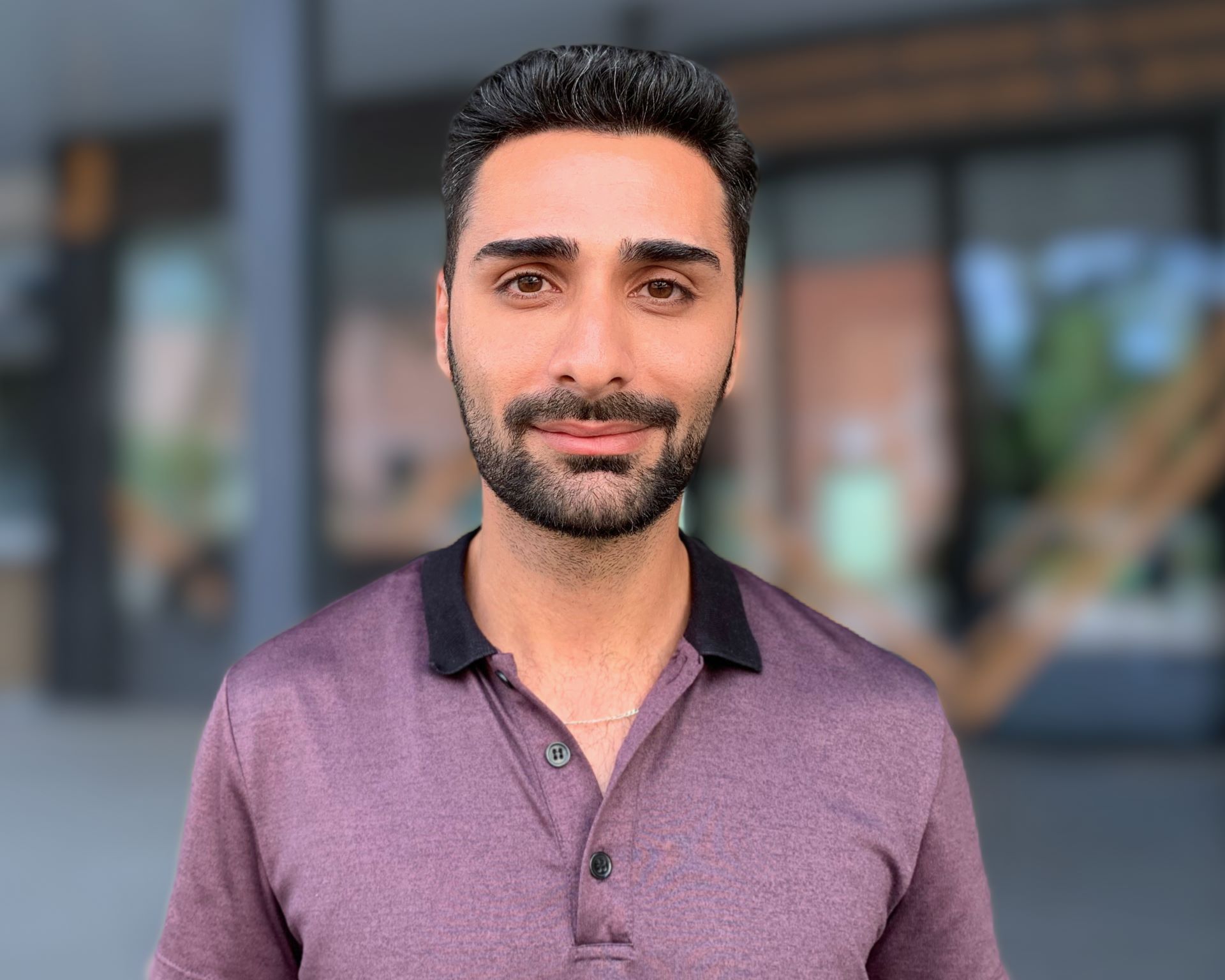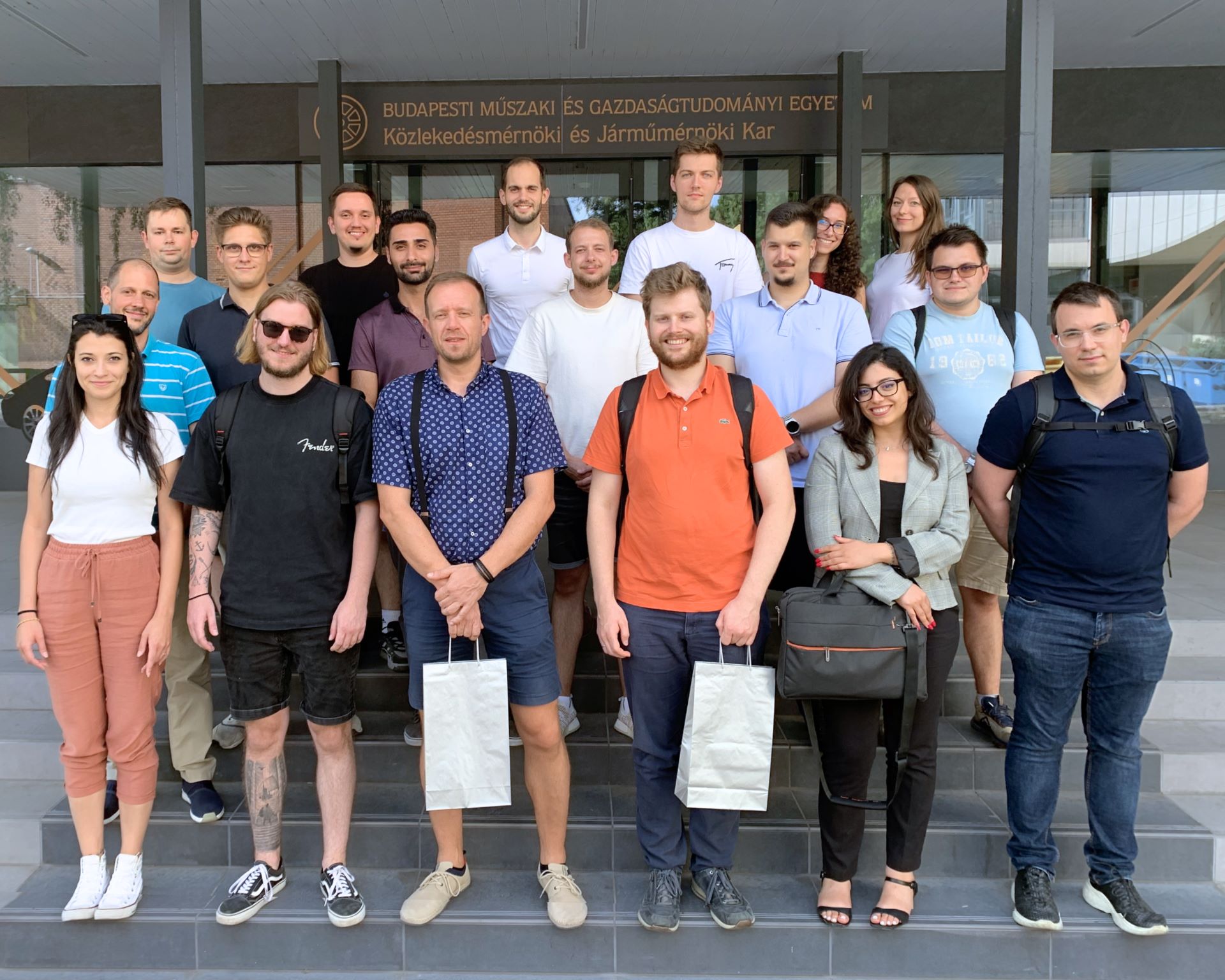Effective Knowledge Transfer: Successful Training for Jaguar Land Rover Hungary’s Development Engineers
From July 22 to 24, the Safety Technology Research Group of the BME Department of Automotive Technologies held internal training for Jaguar Land Rover Hungary’s development engineers. During the three-day event, participants received both theoretical and practical insights into key areas of E/E (electrical and electronic) safety knowledge, focusing on Functional Safety (FuSa) in vehicle design.
Interactive and Fruitful Training
Dr. Árpád Török, head of the Research Group and professional supervisor of the training, commented on the event: “It was amazing to see how active and cooperative JLR’s colleagues were at BME’s automotive safety education event. The event provided both a theoretical and practical overview of the key areas of E/E safety knowledge related to vehicle design. This experience perfectly demonstrated that knowledge transfer can only be successful if there is continuous interaction between the participants and the lecturer. Thank you, JLR!”
Engineers’ Perspectives: Experiences and New Approaches
After the training, we interviewed three participants about their experiences.
How was your day? How did you feel about the training?
József Pázmány: I felt really good; I think the training was excellent. I found it very useful because it thoroughly organized the basic concepts. In my work, I have encountered many concepts, heard about them, and made decisions about them. However, it was very beneficial to understand and organize the knowledge from the basics.
What is your opinion on the practical part of the training?
Balázs Kóbor: I think it was definitely useful to see practical examples of what we had learned theoretically over the past two days. It was good to apply the theoretical knowledge in practice. I found it particularly interesting to see how practical solutions connect to theoretical foundations. The training clarified the related concepts and will help us speak a common language within the team in the future.
Was there any new approach or interesting aspect for you during the training?
Taha Özcelik: I have been working as a functional safety engineer for almost a year now, and this training was particularly significant for me because I graduated from this department. It was very memorable to learn from my professors again after nearly a year. From a technical perspective, it allowed me to better understand and compare the practical knowledge I gained at the company with the theoretical knowledge provided here. This training helped enhance my understanding of functional safety topics comprehensively. Personally, I highly recommend continuing such training sessions between JLR and BME in various fields like systems engineering, control engineering, functional safety, and cybersecurity.

Taha Özcelik
A Model of University-Industry Collaboration
This training is a prime example of the collaboration between academia and industry, where the program is tailored specifically to the needs of the industry – in this case, Jaguar Land Rover. Such partnerships not only expand the participants’ knowledge but also create opportunities for further collaboration between BME and JLR. These training sessions strengthen the relationship between academic and industrial partners and contribute to the integration of practical and theoretical knowledge, which is essential in the rapidly changing automotive industry.
The BME Department of Automotive Technologies remains committed to providing the highest level of training for Jaguar Land Rover Hungary’s engineers, ensuring future innovations and developments in the field of vehicle safety.
The research related to some of the developments presented during the training was funded by the European Union under the National Laboratory for Autonomous Systems (RRF-2.3.1-21-2022-00002)
 BME GJT
BME GJT
 BME GJT
BME GJT